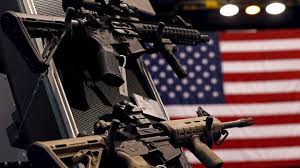The United States has one of the highest rates of civilian firearm ownership in the world, with an estimated 433.9 million firearms in civilian possession as of 2020. While some argue that the Second Amendment protects an individual’s right to bear arms, others believe that the proliferation of firearms poses a significant threat to public safety and has negative economic consequences.
The economic implications of the proliferation of firearms are twofold. On the one hand, the firearms industry is a significant contributor to the US economy, with the total economic impact of the industry estimated to be around $60 billion annually. This includes the manufacture and sale of firearms, as well as related industries such as hunting and shooting sports.
On the other hand, the societal cost of firearm-related violence is substantial. The Centers for Disease Control and Prevention (CDC) estimates that the direct medical costs of treating firearm-related injuries in the US are around $2.8 billion annually. This does not include the indirect costs associated with lost productivity, criminal justice expenses, and the impact on mental health.
Furthermore, the proliferation of firearms also poses significant challenges to public safety. Gun violence is a leading cause of death in the US, with more than 39,000 deaths by firearms reported in 2020 alone. This includes both homicides and suicides. The availability of firearms can also lead to accidental shootings, particularly among children.
The issue of gun violence has been highly politicized in the US, with some advocating for stricter gun control laws and others arguing that such laws infringe on their Second Amendment rights. However, there are some measures that can be taken to address the issue without infringing on these rights.
For example, many states have implemented “red flag” laws, which allow law enforcement to temporarily remove firearms from individuals who pose a threat to themselves or others. These laws have been shown to be effective in reducing suicides and mass shootings.
Additionally, there is growing support for universal background checks for all gun sales, including those conducted at gun shows and online. According to a 2018 survey by Quinnipiac University, 97% of Americans support universal background checks.
Overall, the proliferation of firearms in the US has both economic and safety implications. While the firearms industry is a significant contributor to the US economy, the societal cost of firearm-related violence is substantial. Addressing this issue without infringing on Second Amendment rights is a complex challenge, but measures such as red flag laws and universal background checks are a step in the right direction.
